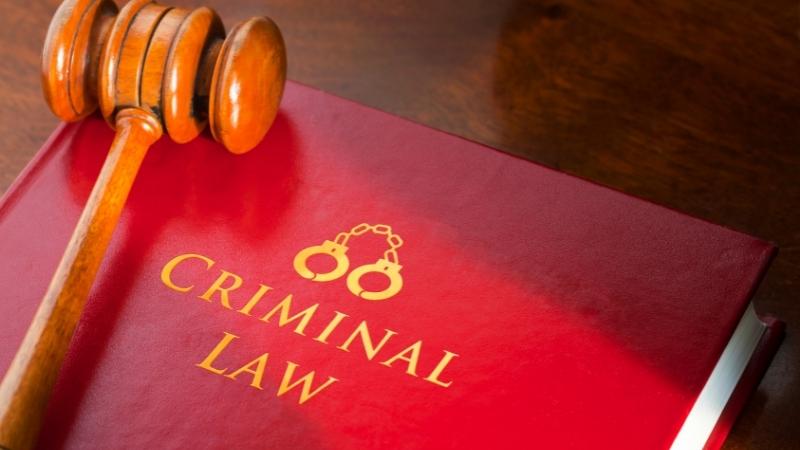If you have been accused of a criminal charge in any region, you should consider consulting a criminal lawyer immediately. A professional criminal lawyer can assist you in guiding through the court system’s intricacies and ensuring that you construct a strong defense against the allegations. While engaging a criminal lawyer does not absolutely assure that you will be acquitted of the accusations, it does maximize your odds and will almost certainly help you obtain the right solution.
When approached with the idea of employing a criminal lawyer, many people are hesitant at first because of funding issues. Considering the massive expense of professional legal services in the first place, this is very justifiable. However, when weighing the costs and benefits, hiring a criminal lawyer almost always exceeds the cost of preserving one’s rights and/or restricting the severity of legal consequences.
If you are suspected of a crime, you will most likely be unsure about where to go. Lawyers who specialize in criminal defense can assist you. Outside and inside the court, legal services are critical in criminal matters. Quality legal services, on the other hand, come at a price. This writing will explain the ins and outs of legal representation for criminal defense lawyers in the U.k., as well as provide some examples of expenses to give you a picture of what would happen.
What are the facts that a lawyer can charge a client for?
Lawyers frequently bill by the hour for the time they spend working and the expertise they provide. This can include a huge variety of acts that are all connected to criminal prosecution. Depending on the severity of the conviction, it can be difficult to construct a criminal lawsuit. Consultations with the suspect, obtaining witnesses, and developing arguments are just a few of the things that can be done. But what may a lawyer particularly charge for?
The lawyer’s payment (typically per person hourly served), out-of-pocket fees, reimbursements, courtroom and expert testimony fees, and maybe barrister payments if the matter gets to trials will all be included in the expenses. This could include things like trip fees, printing, phone conversations, and even conceptualizing and effectively discussing things with coworkers. All of this counts as chargeable court cases. If you’ve been accused and are being held in custody, you may call major criminal defense lawyers’ 24/7 hotlines to review bail choices and costs.
It’s worth noting that fees can be levied independently of whether or not the lawyer’s counsel is successful. That is, regardless of whether you are convicted of a crime, a lawyer might bill for the time spent and services he provides. A business that works on a ‘contingency’ system will only collect if their instance is effective; in other words, there would be paid if the alleged person is deemed not convicted or has their sentence reduced before even taking the stand in the court, so there will be no payment if the defendant is proven guilty at the trial.
These partnerships are infrequent in the United Kingdom since defending persons who are apparently found culpable takes a significant amount of time, and lawyers cannot dependably foresee the results of cases. A court has the authority, but not the obligation, to issue an expenses order at the conclusion of a matter. This could entail the ‘losing party’ being forced to pay the ‘winner party’s legal fees. Quite an order could be justified in cases where the indictment was baseless. For instance, if an individual is arrested for a crime, appears in court, and is declared innocent, a judge might, but not always, order the prosecutor to pay the accused’s expenses.
However, be aware that if you are proven guilty, the court might require you to pay all judicial and prosecuting expenses. In this instance, one can obtain insurance through their defense lawyer, which will help cover the cost of the opposing party if the plan fails and court fees are directed to be given to the successful party, i.e., the courts and prosecutor.

What are the different varieties of fee contracts?
Fixed-fee contracts
Fixed-fee agreements are straightforward. A criminal defense lawyer will estimate the expense for a particular situation in advance and provide a quote for that service. The quote could be constrained by conditions such as the absence of unforeseen twists in the lawsuit, the conclusion of the case taking only a particular length of time, and the need for only one court session. Anything at all that takes more effort than what was quoted for would be considered additional, requiring the implicated individual to contribute more.
Factors affecting the fixed payment system
While determining the pay structure for each lawsuit, defense lawyers consider a number of different aspects and considerations that will decide the amount of time and effort required to take up the case to a satisfactory conclusion. The following are some of the variables and questions they consider:
- The case’s complication.
- The possibility of judiciary pre-trial work being required.
- Is a pretrial hearing necessary in this case?
- The number of trials and/or additional court encounters.
- The Crown’s evidentiary holdings in terms of quantity and kind.
- Will the trials be handled in front of a judge or in front of a jury?
- On behalf of clients, more research and data collecting is required.
- Possibility of charges being dropped before trials.
- The number of prospective defense experts and their significance on the issue.
- Possibility of reaching a plea deal that is satisfactory to both the client and the Crown.
- The number of Crown eyewitnesses and the influence they could have on the argument.
- Is there an accusation or a simple verdict in the case?
- Is it necessary to have expert testimony?
Contingency payment agreements
A contingency fee is a type of payment that a lawyer receives in exchange for his or her professional representation. In contrary to a preset agreed amount, lawyers in a contingent fee contract get a proportion of the amount received by their client when the case is settled or settled. In other words, in a contingency basis arrangement, the lawyer is now only paid if the client is favorably defended. Furthermore, the amount received by the lawyer is dependant on the outcome obtained by the lawyer and, in many cases, the stage of a lawsuit in which the dispute is resolved.
No-fee contingency fee agreements are based on the principle of no-win, no-fee. In other terms, if a client’s lawsuit is unsuccessful, the client will not owe a payment to the lawyer. In any case, before any work begins, the method in which a criminal defense lawyer would charge an alleged offender should be explicitly laid out and agreed upon with the alleged offender.
Retainer fee upfront
A retainer may be required from time to time by a lawyer. This could be priced per hour, for example, they might require payment for 10 hours of working before they commence working on your issue. This acts as a form of insurance, ensuring that the defendant will be allowed to pay for services that are availed to them.

How much does it cost to employ a criminal defense lawyer typically?
The typical cost of engaging a criminal lawyer is hard to ascertain because it is based on a variety of circumstances. For starters, due to the intricacy of the proceedings and the reality that one’s freedom is on the line, criminal lawyers frequently cost more than private courts or civil counsel. The hourly cost is the most important measure of expenses.
The hourly wage of a lawyer is determined by their knowledge and reputation. More specialists with a specific degree of knowledge will demand more than younger lawyers, regardless of the fact that the young do not operate solo; they collaborate with and accompany the seniors. In most cases, a payment estimate will be given, however, this is likely to be modified. When a set fee is imposed, this is managed privately, and a one-time fee is charged.
Another factor that is important is the law firm where the attorney works. Lawyers’ hourly rates are frequently established by law for larger law firms that charge the most hourly than smaller firms because they are expected to acquire more knowledge and ability. typically, semi and small law firms will demand much less than ‘Magic Circle.’
What one can be convicted with is also determined by the court where one will appear. Crown Court and Appeal Courts will charge much greater charges because of the intricacy and longevity of the proceedings, whilst the Magistrate’s Courts will charge considerably lower rates. A trial will cost much more than paying out of court, obtaining a plea deal, or having a case dropped before going to the courtroom with the counsel of a criminal defense lawyer. In a criminal proceeding, this is also dependent on a variety of variables and occurrences. Given the financial incentive to go to the trial, criminal defense lawyers are enthusiastic about their convictions and will go to any length to keep their clients out of the courts.
In all circumstances, the criminal lawyer ought to be transparent and accountable about how they will fee and should finalize their conditions of business (or another contract as described) to provide assurance about how one would be billed.
Hourly pay rates of a criminal defense lawyer
The UK government has given lawyers some instructions on how much to cost their clients per hour. It is, nevertheless, merely advice, and lawyers, particularly those who charge fixed rates, may stray from it. The guidance’s major points are that I rates of pay vary greatly depending on decades of knowledge and reputation of a law practitioner, and (ii) London charges are substantially higher than the other states of the UK. The costs vary depending on where you are in London, and also where you are in the United Kingdom and are all stated on the webpage.
According to the guideline, lawyers in London with more than eight years of experience could demand around£229 and £409 hourly where lawyers with more than four years of experience may collect between £200 and £296 hourly. Other lawyers with a little less experience may ask for around £165 and £226 hourly, while apprentice lawyers and paralegals might demand between £121 and £198. Apprentice lawyers and paralegals, and many other more intermediate subcategories, frequently serve for higher managerial lawyers, therefore agree to earn senior and some more intermediate, apprentice, or paralegal rates.
The fees charged by lawyers in the remainder of the United Kingdom might be much lower than those charged by lawyers in London. Seniors can demand somewhere around £177 to £217 per hour. Other lawyers with less expertise, apprentice lawyers, and paralegals can ask for around £111 and £118 hourly, so the proposed prices aren’t all that different.
Hourly charging has advantages and drawbacks from the accused’s perspective. The advantage is the Plaintiffs who charge by the hour profit from a rapid resolution of a case. The main drawback is it can also be highly pricey if the matter turns surprisingly intricate. Furthermore, hourly fees provide lawyers with a monetary incentive to dedicate more effort and time to a lawsuit than the issue merits or the accused is willing to pay for. In addition, most criminal defense lawyers have baseline retainer pay rates that they maintain even if the matter is settled with a single phone conversation.
Fortunately, skilled defense lawyers can typically predict the number of hours they will invest on a matter, and a plaintiff really shouldn’t consent to an hourly fee without first getting a decent indication of how long the case will last.
Now you have got deeper insights into the factors that have a significant impact on a criminal defense lawyer’s rates of pay in the United Kingdom. Before deciding to go for a lawyer, check over the paperwork to get a better understanding of the circumstances. You’ll have assurance knowing that you’re served with the best legal advice possible fully based on your financial situation.
Related Article: How Much Does A Criminal Defense Lawyer
